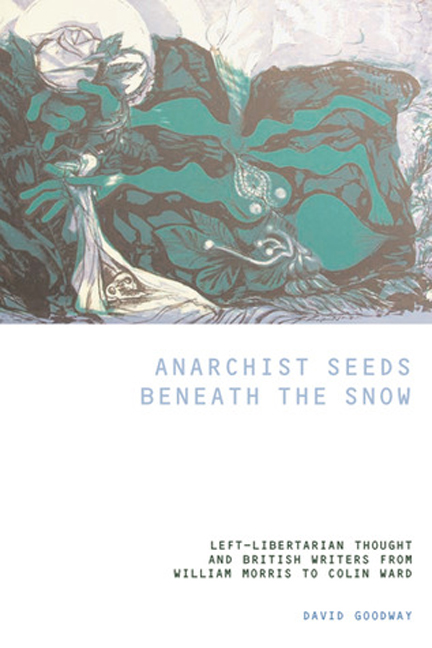 Anarchist Seeds Beneath the Snow
Anarchist Seeds Beneath the Snow Book contents
- Frontmatter
- Contents
- Dedication
- Acknowledgements
- Abbreviations
- 1 Introduction
- 2 Anarchism and libertarian socialism in Britain: William Morris and the background, 1880–1920
- 3 Edward Carpenter
- 4 Oscar Wilde
- 5 John Cowper Powys I: His life-philosophy and individualist anarchism
- 6 The Spanish Revolution and Civil War – and the case of George Orwell
- 7 John Cowper Powys II: The impact of Emma Goldman and Spain
- 8 Herbert Read
- 9 War and pacifism
- 10 Aldous Huxley
- 11 Alex Comfort
- 12 Nuclear disarmament, the New Left – and the case of E.P. Thompson
- 13 Christopher Pallis
- 14 Colin Ward
- 15 Conclusion
- Bibliography
- Index
15 - Conclusion
- Frontmatter
- Contents
- Dedication
- Acknowledgements
- Abbreviations
- 1 Introduction
- 2 Anarchism and libertarian socialism in Britain: William Morris and the background, 1880–1920
- 3 Edward Carpenter
- 4 Oscar Wilde
- 5 John Cowper Powys I: His life-philosophy and individualist anarchism
- 6 The Spanish Revolution and Civil War – and the case of George Orwell
- 7 John Cowper Powys II: The impact of Emma Goldman and Spain
- 8 Herbert Read
- 9 War and pacifism
- 10 Aldous Huxley
- 11 Alex Comfort
- 12 Nuclear disarmament, the New Left – and the case of E.P. Thompson
- 13 Christopher Pallis
- 14 Colin Ward
- 15 Conclusion
- Bibliography
- Index
Summary
Mass, working-class anarchism had flourished throughout Europe and the Americas from the 1860s down to the First World War, and then principally in the Hispanic world until the calamitous defeat of the Spanish Revolution, more by Stalinist counter-revolution than by the ultimate triumph of Francoism. Thereafter only isolated pockets seem – the historical record is as yet extremely unclear – to have survived as, for example, in Cuba until that movement was hounded into extinction after the Revolution of 1959.
It has been seen that in Britain pure anarchism – unlike the broader libertarianism during the second decade of the twentieth century of syndicalism, industrial unionism, the Shop Stewards’ and Workers’ Committee Movement, and Guild Socialism – had never achieved any better than a minuscule following (other than among the Yiddish speakers of London's East End and possibly on Clydeside). Freedom, founded by Kropotkin and others in 1886, was defunct by 1927 and had not been replaced, let alone supplemented, by any other journal. It was the stimulus of the Spanish Revolution and emergency of the Civil War that caused the young Vernon Richards in 1936 to found Spain and the World, leading to his reformation of a Freedom Press Group with some energetic and talented, new young anarchists, and the reappearance of Freedom after 1945. During the Second World War anarchism had fared, in an embattled way, reasonably well owing to the solidarity between the small anti-war groups; but with the end of the war, Labour's electoral triumph and its programme of nationalization and welfare legislation, the anarchists became exceptionally isolated. Marie Louise Berneri, as has been seen in the previous chapter, observed of Freedom towards the end of the 1940s: ‘The paper gets better and better, and fewer and fewer people read it.’ The political and intellectual isolation of British anarchism, together with its lack of numerical support continued throughout the 1950s, leading Ward to comment that ‘the problem of the nineteen-sixties is simply that of how to put anarchism back into the intellectual bloodstream, into the field of ideas which are taken seriously’.
- Type
- Chapter
- Information
- Anarchist Seeds Beneath the SnowLeft-Libertarian Thought and British Writers from William Morris to Colin Ward, pp. 326 - 338Publisher: Liverpool University PressPrint publication year: 2006
